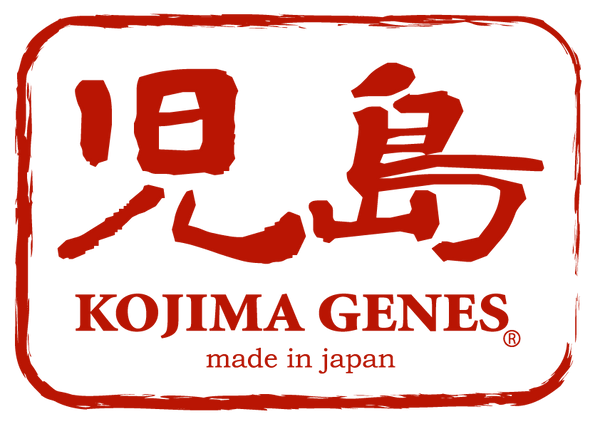About Us
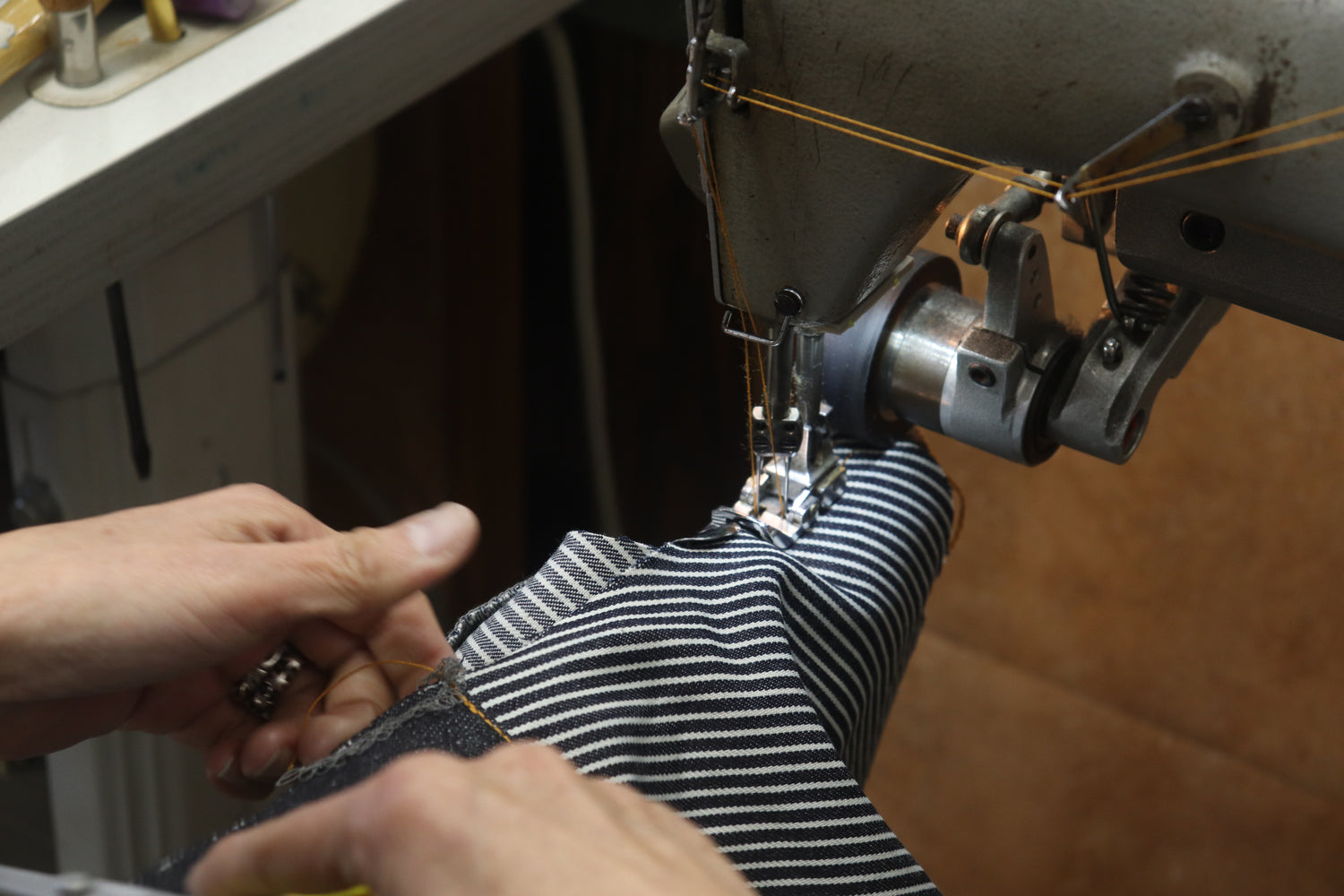
Brand history
Kurashiki City, Okayama Prefecture, Kojima
Kojima, Kurashiki City, Okayama Prefecture, is a town where textile culture has taken root since the Edo period. From cotton cultivation, canvas, military uniforms, and student uniforms, it is now known worldwide as a major producer of MADE IN JAPAN denim. Kojima's strength lies in its ability to handle everything from fabric production to sewing, washing, and processing in an integrated manner. In order to pass on this technology to the future, our brand “Kojima Jeans” was named after “genes (genes). We inherit Kojima's technology and culture and create unique value.”
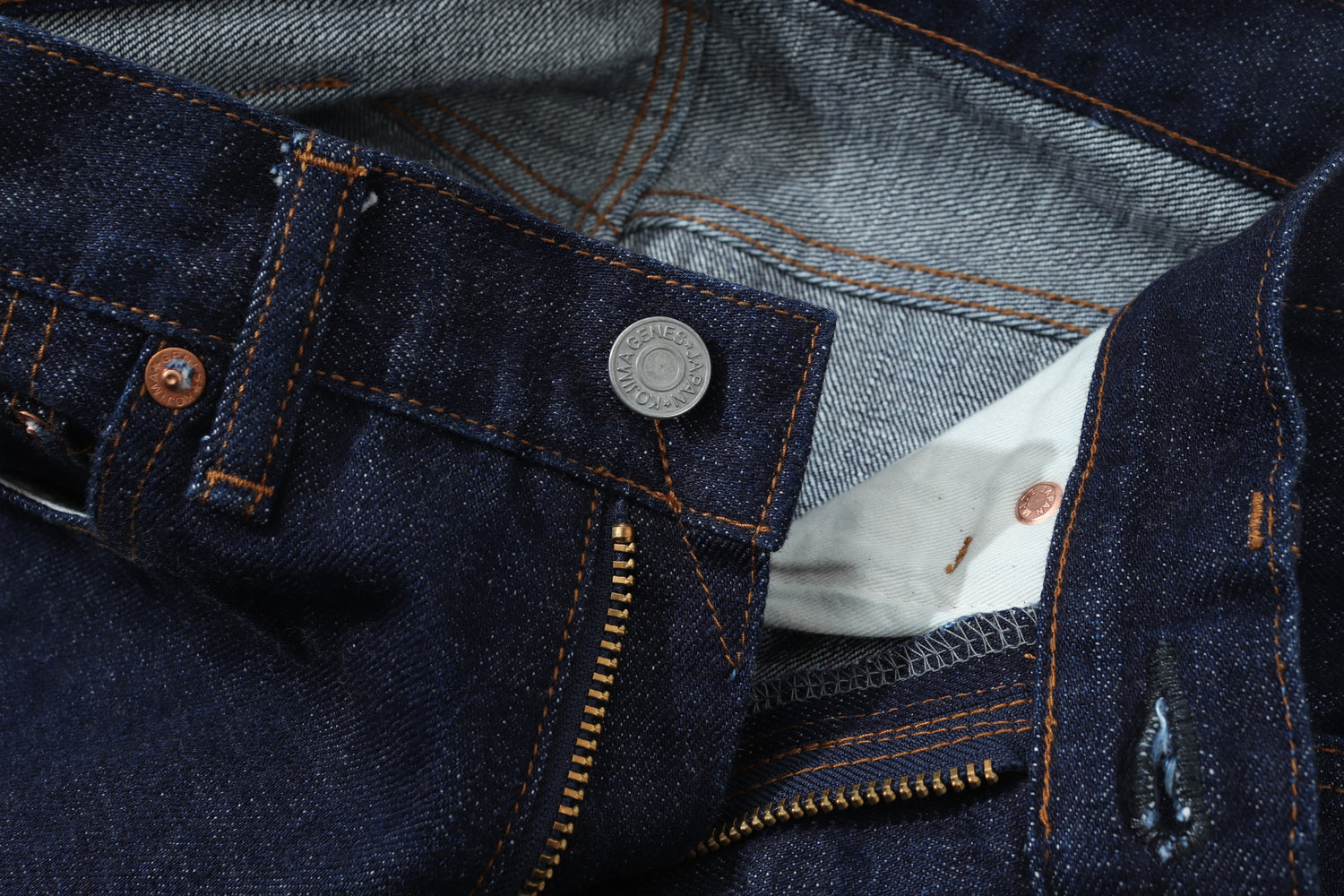
Commitment to materials
“Kojima Jeans connects with the world
Kojima Jeans uses fabrics manufactured in Japan and developed original fabrics in collaboration with KUROKI Co. Heavy-ounce denim, in particular, is a rare material that can only be woven by a limited number of companies in Japan. We spare no expense or time in pursuit of a one-of-a-kind finish that cannot be obtained through mass production. In addition, custom-made buttons and rivets by YKK Corporation and original leather patches made of domestic cowhide are used to achieve uncompromising craftsmanship down to the smallest detail. This is a gem that combines world-class quality with Kojima's technology.”
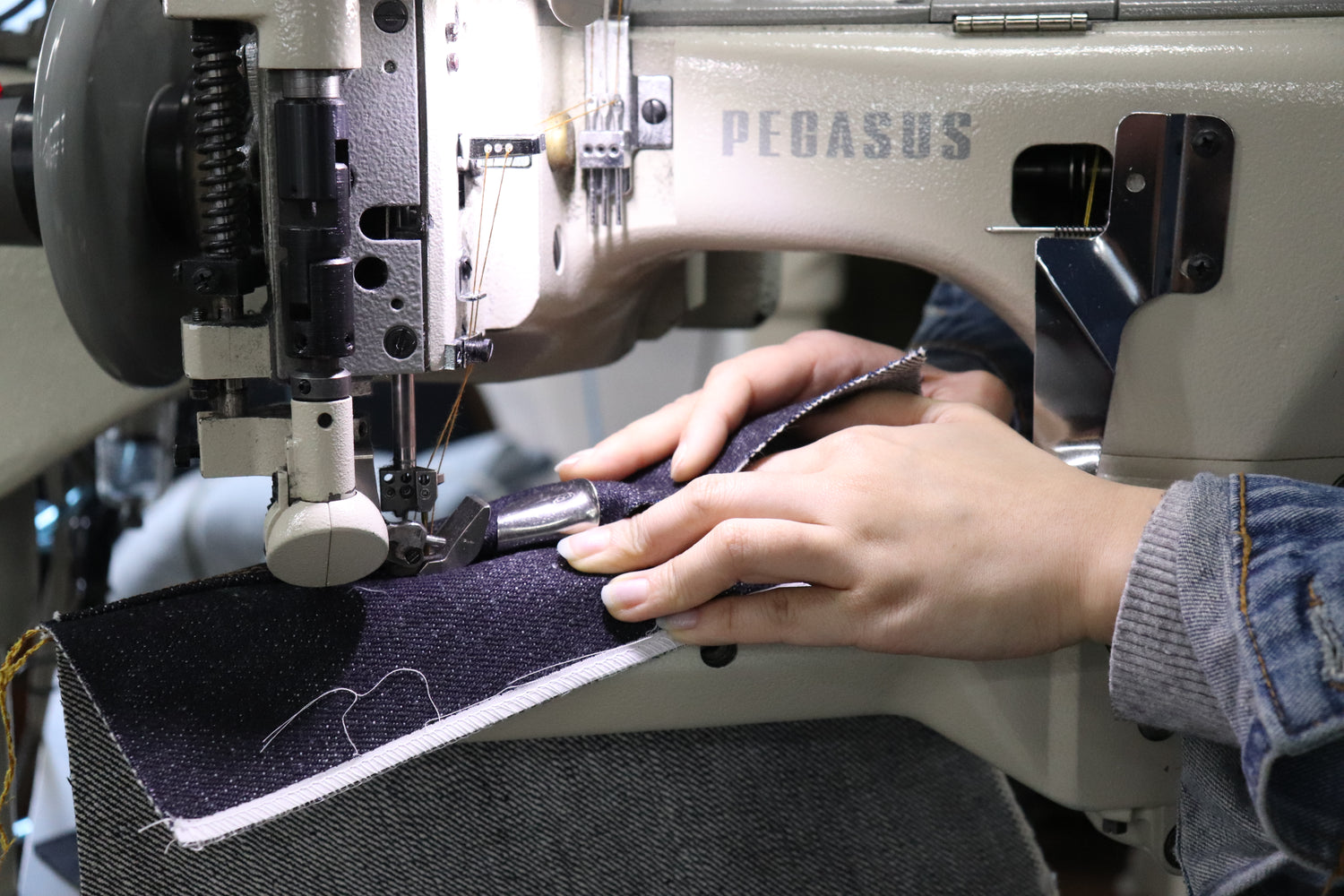
Craftsmanship
Denim Craftsmen
Patterner
Based on the decided plan and rough draft, a meeting is held with the patterner to discuss the reproducibility in sewing. At the same time, the type and color of sewing threads, which play an important role in sewing, are carefully selected according to the jeans' design, purpose, and fabric thickness.
Cutting Artisan
Based on our originally developed fabrics and patterns, all parts are cut without any deviations. It takes many years of feel and skill to operate a cutting machine that has been improved and maintained over the years. In addition, skilled craftsmen can cut without using a cutting machine, using only one Japanese knife, the chisel. Skilled craftsmen do not waste any movement. They do not move the fabric or themselves to the minimum extent necessary, but use their left and right hands alternately to cut symmetrically and without any deviation.
Sewing Craftsman
Based on the cut fabrics, selected sewing threads, buttons, rivets, leather patches, etc., the compatibility of the fabrics is checked again. Design alone is not enough; the judgment of the craftsman on site is extremely important. Thread count, color, and number of stitches are fine-tuned, and the sewing machine is set up to match the part to be sewn. Different sewing machines need to be adjusted for each part number to be produced, and it can be said that sewing techniques and machine settings are inseparable. A skilled craftsman can instantly grasp the characteristics of a fabric just by looking at it or touching the sewing thread, and proceeds with his work as if he were drawing the finished product in his mind.
Washer
The washer is responsible for the process of literally “washing” jeans after sewing and attaching accessories. There are various types of washes, but the most typical wash in the denim industry is “one-wash. This process removes the glue from the glued fabric, called rigid, and uses a special cauldron washer and dryer. Japan has four distinct seasons, and while keeping an eye on the different temperatures and humidity levels, detergents and water temperatures are adjusted according to the application, and a method is selected that does not put too much stress on the jeans.
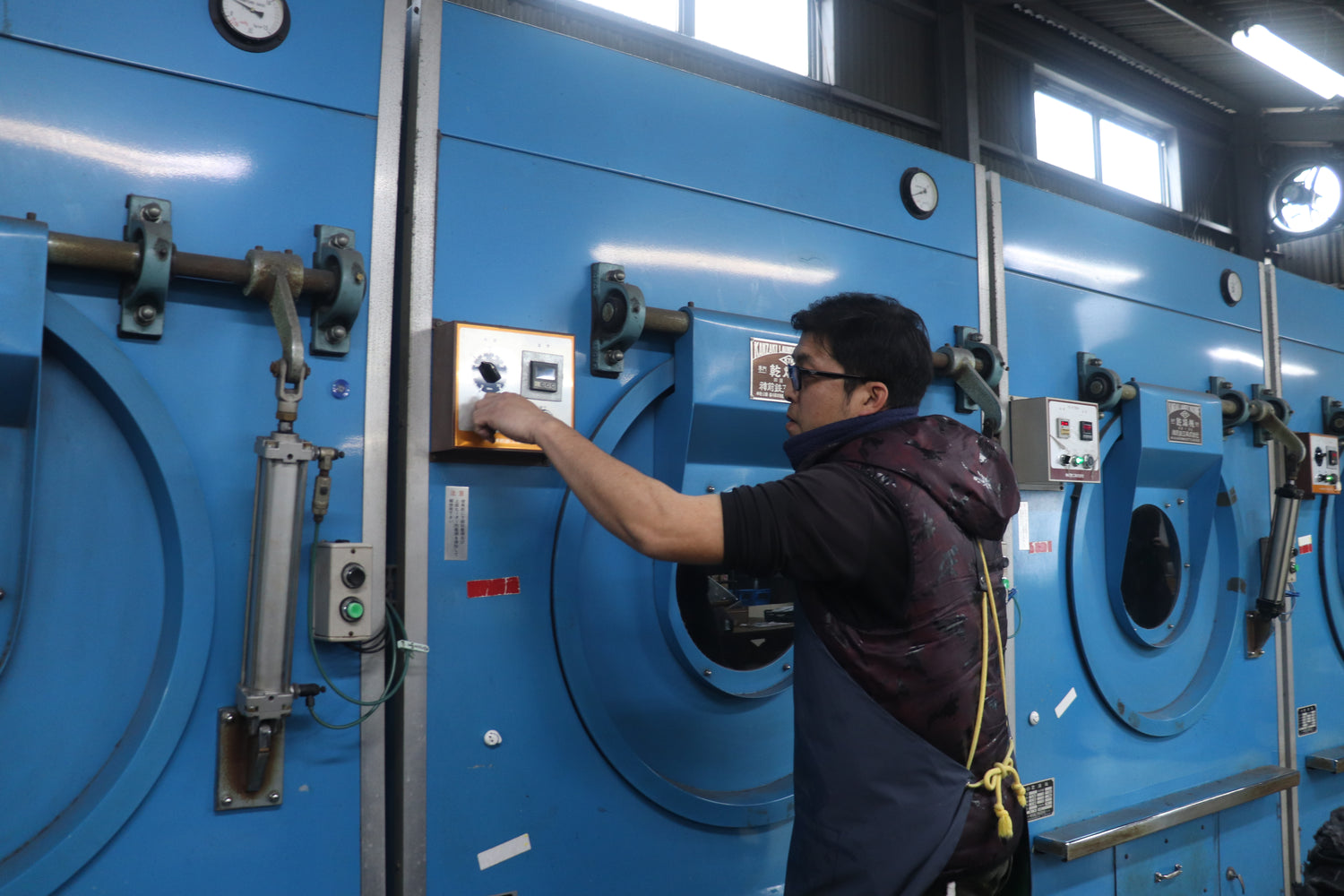
Japanese dyeing technology
“Deep indigo color by rope dyeing
Kojima Jeans denim is rope-dyed to fix a deep indigo color on the surface of the yarn. The characteristic of the yarn, called “medium white” or “core white,” which leaves the core white, creates the unique appeal of jeans that can be enjoyed for their color fading and change over time. Combining thick fabrics and unique dyeing techniques, denim is a symbol of world-class Japanese craftsmanship.”
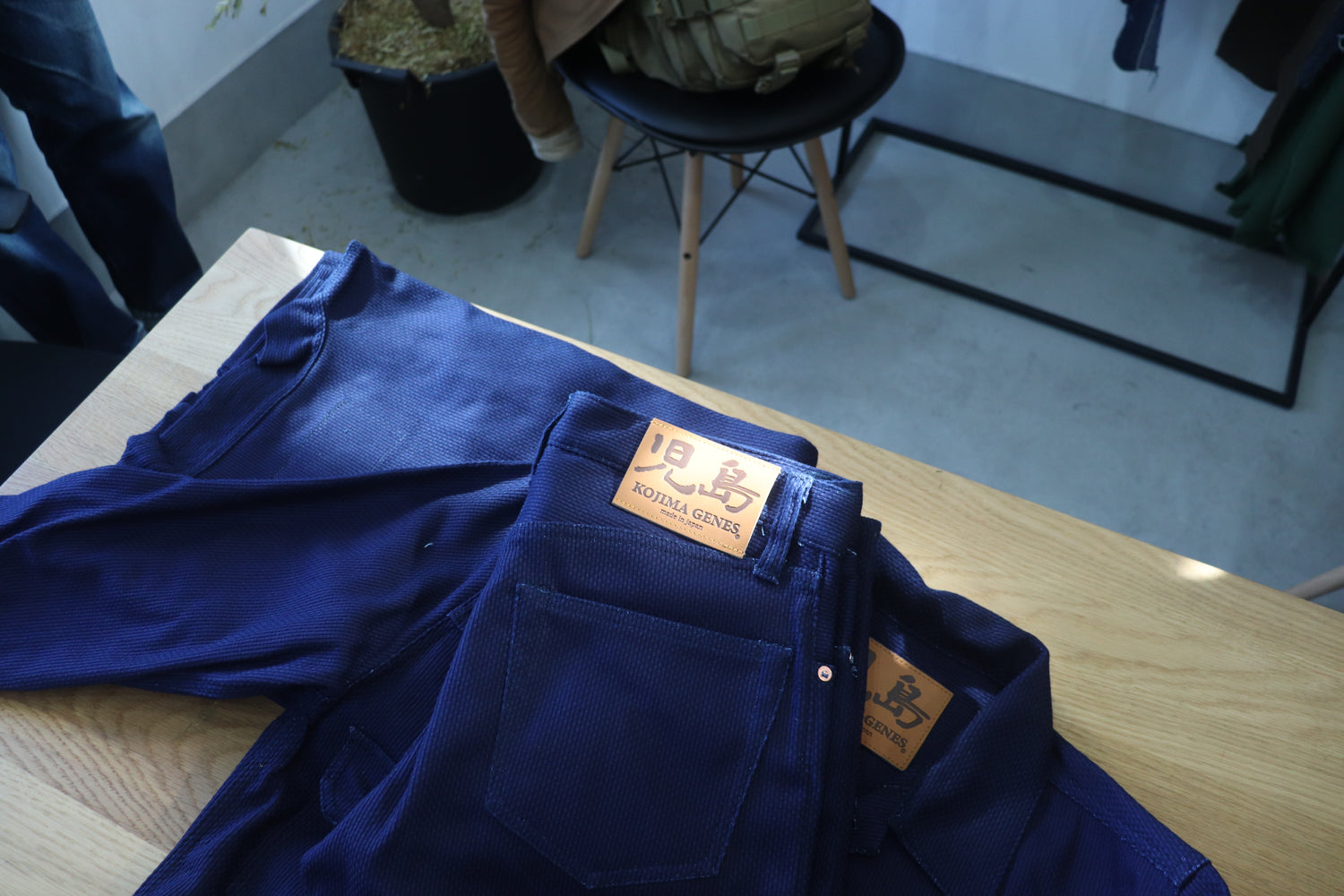
“Age-related changes” that change over time
“All denim fabrics are original
13oz, 15oz, 17oz, 19oz, 21oz, 23oz
Even jeans of the same item number and the same size can look very different depending on the lifestyle of the person who wears them.
The more a pair of jeans is worn, the more the color fades and the more it is worn, and the more it becomes a unique pair of jeans for the owner. This change over time provides enjoyment not found in other bottoms. Kojima Jeans embody Japan's “mottainai” spirit of conserving resources. By continuing to love and use them while repairing any tears or scratches, they contribute to the realization of sustainable fashion. Jeans are a special item that allows you to have fun and take care of things at the same time.”
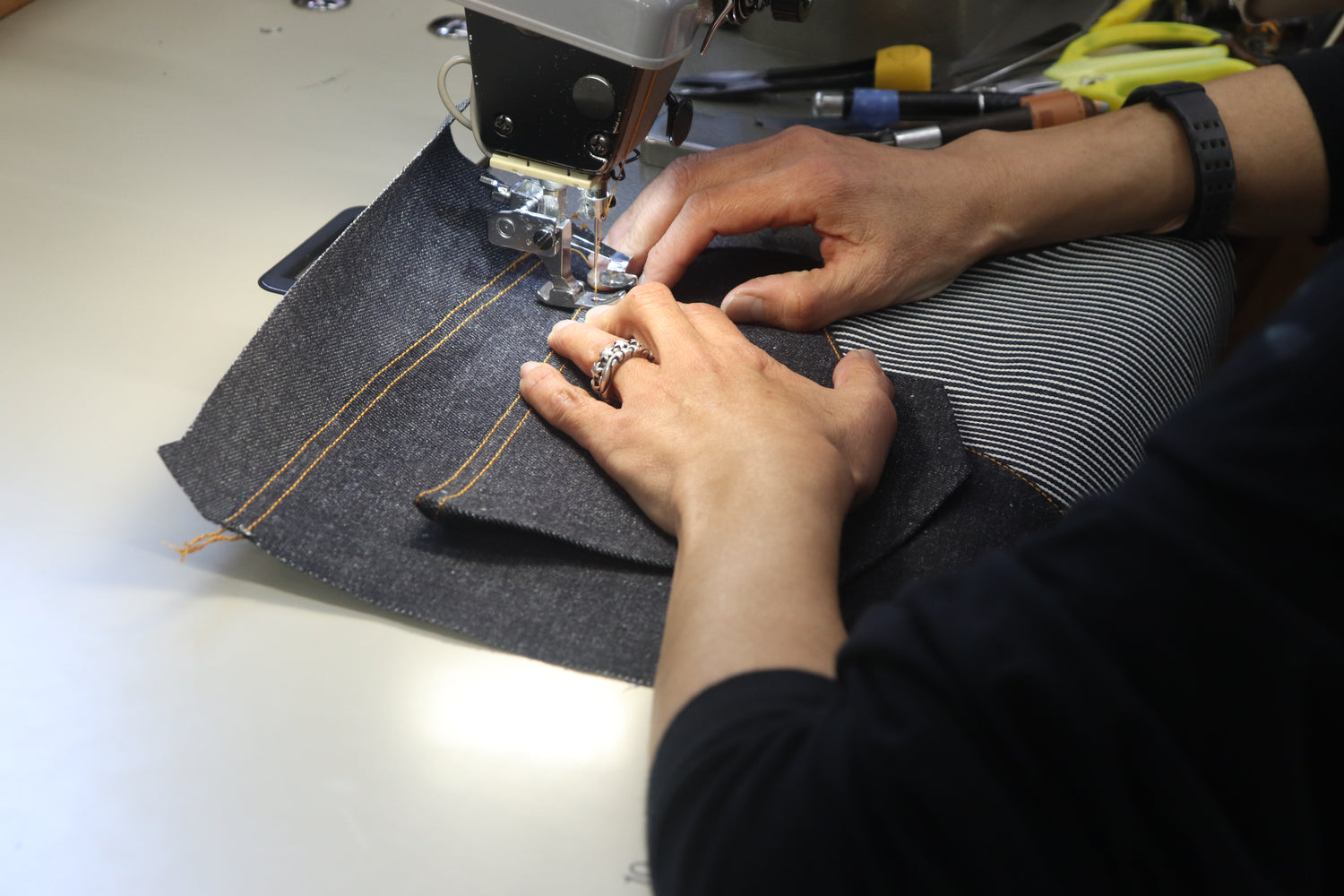
Philosophy
Jeans that are imbued with the spirit of “mottainai” (wasteful)
The appeal of jeans is not to replace them when the color fades, but to wear them further to create a unique pair. Kojima Jeans are denim that can be worn for a long time thanks to their sturdy fabric and elaborate sewing. Even if they are torn or frayed, they can be re-stitched or patched and used until the end, which is the very spirit of “mottainai” of the Japanese people. This value, which can be found in traditional cultures such as kintsugi (gold-jointing) and futon re-facing, is what makes jeans so special and beyond fashion.”

The value of being made in Japan
World-class MADE IN JAPAN
The fact that many companies in Japan have been in business for 100 years is a testament to the craftsmanship and traditions that are still alive and well. Kojima's textile industry also has a history of over 200 years, and continues to develop through the evolution of machinery and the passing down of techniques. The “finishers” who are responsible for the final process of jeans production spread the name of “MADE IN JAPAN” throughout the world with their uncompromising quality control.

Brand values and mission
text
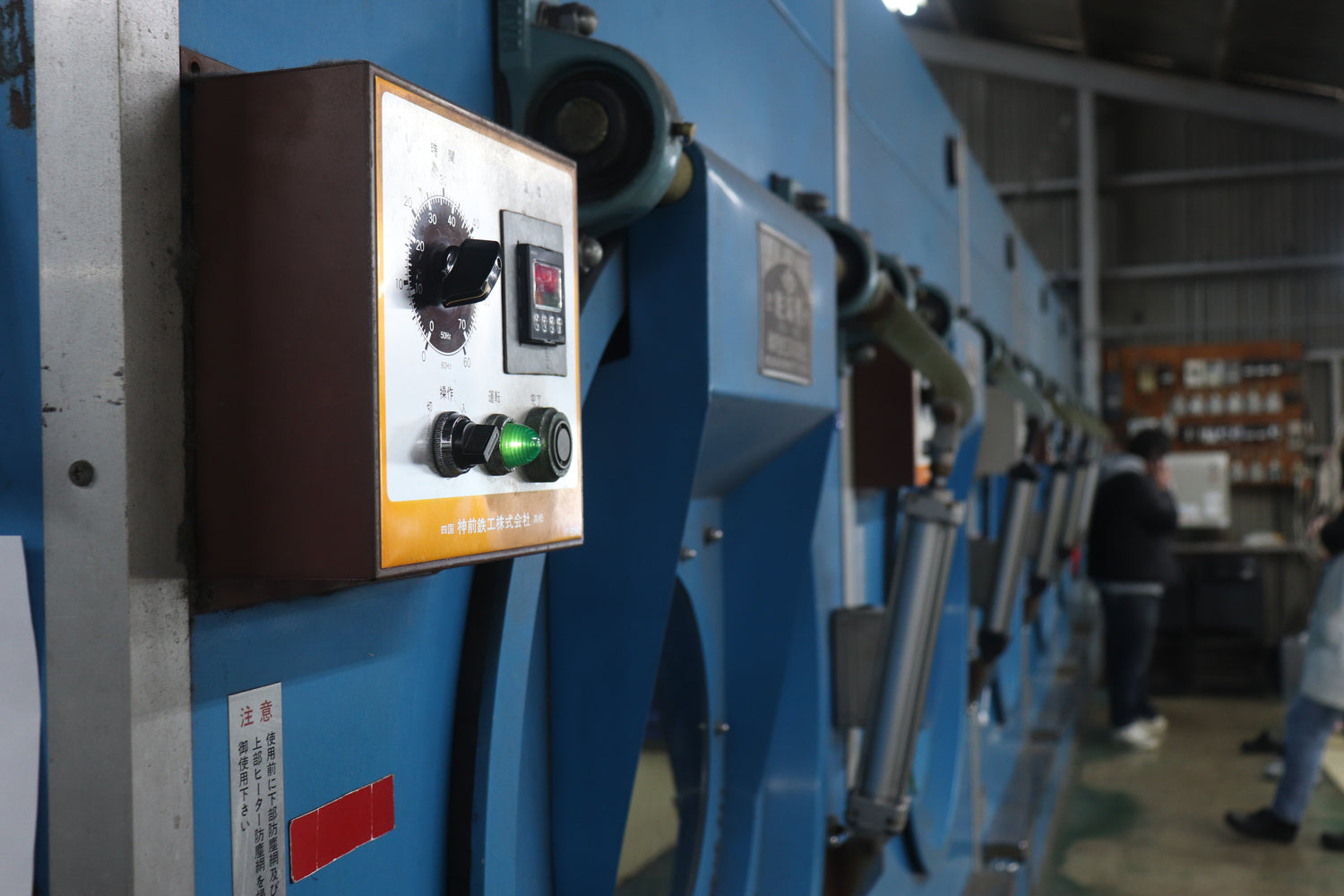
Dedicated facilities and manufacturing equipment
Commitment to Sewing and Machinery
Kojima Jeans introduced custom-built machines to sew heavy-ounce denim. We have improved on vintage sewing machines and perfected thick denim, which was considered difficult to commercialize, using our own unique technology. With a manufacturing system that is possible only in Kojima, where tradition and innovation coexist, we offer products that do not compromise on quality and design.”
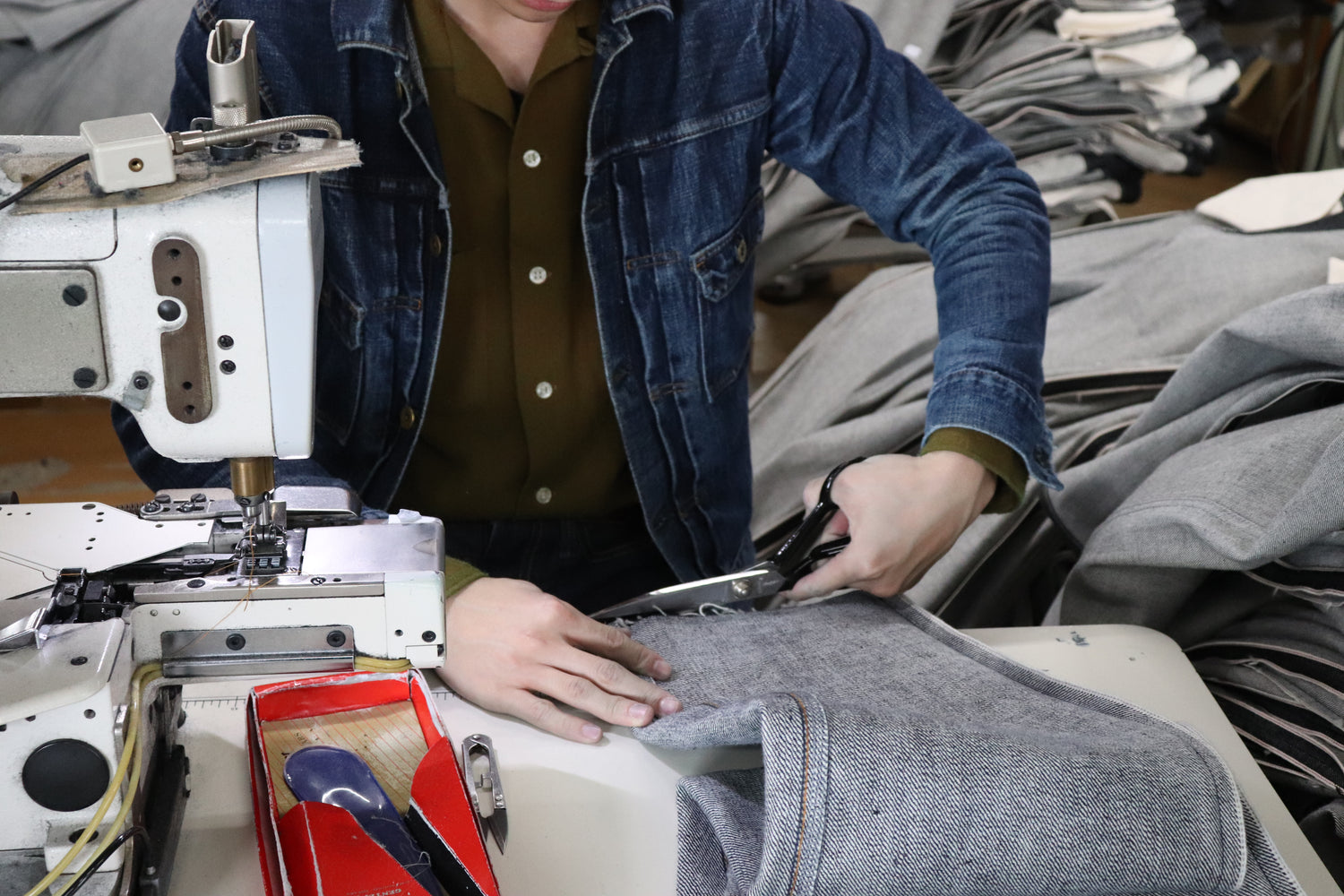
Founder's vision and future
text
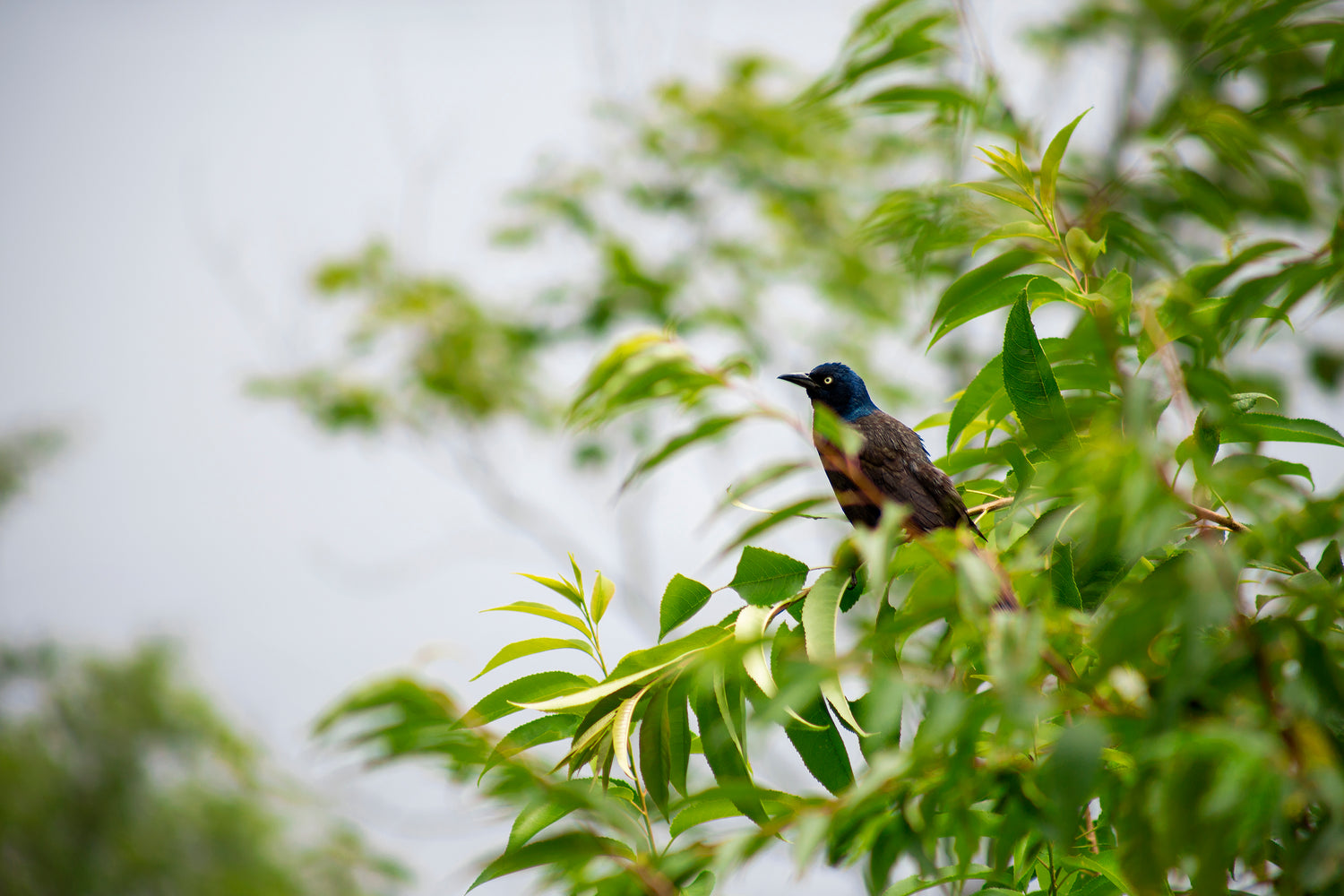
Community contribution and environmental protection initiatives
“Kojima Jeans Street: A Unique Scenery of Denim Town
Kojima Jeans Street, with its indigo-colored streets and selvage-style white lines, is a symbol of the town of jeans. About 40 stores line the street, which is enlivened by local events such as “JAPAN DENIM DAYS” and “Textile Festival. Showcasing craftsmanship through open-air factories and the sale of B products, this shopping district is beloved by tourists. Local industry and sustainable initiatives further enhance Kojima's denim culture.”
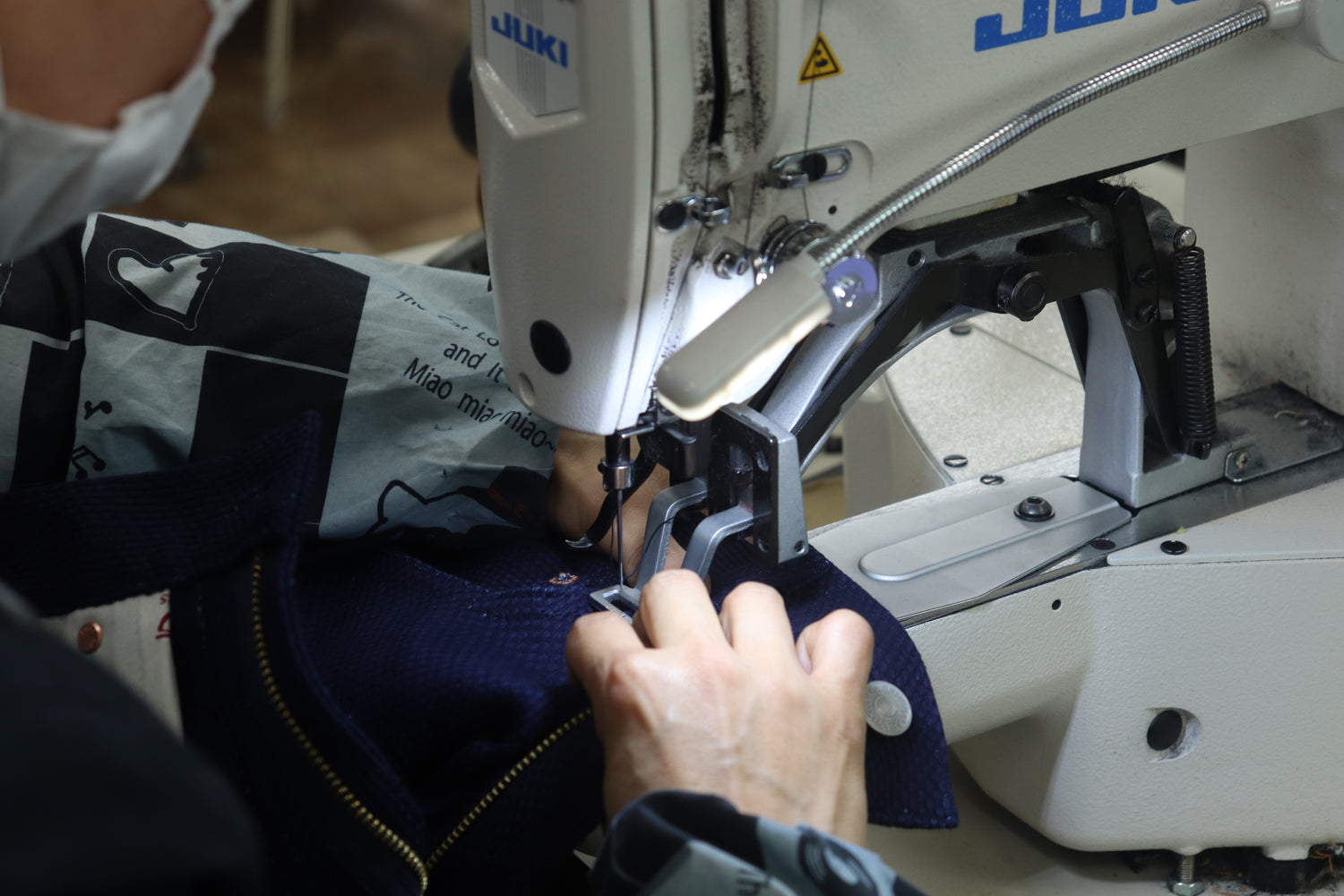
Quality assurance and product durability
Pair text with an image to focus on your chosen product, collection, or blog post. Add details on availability, style, or even provide a review.
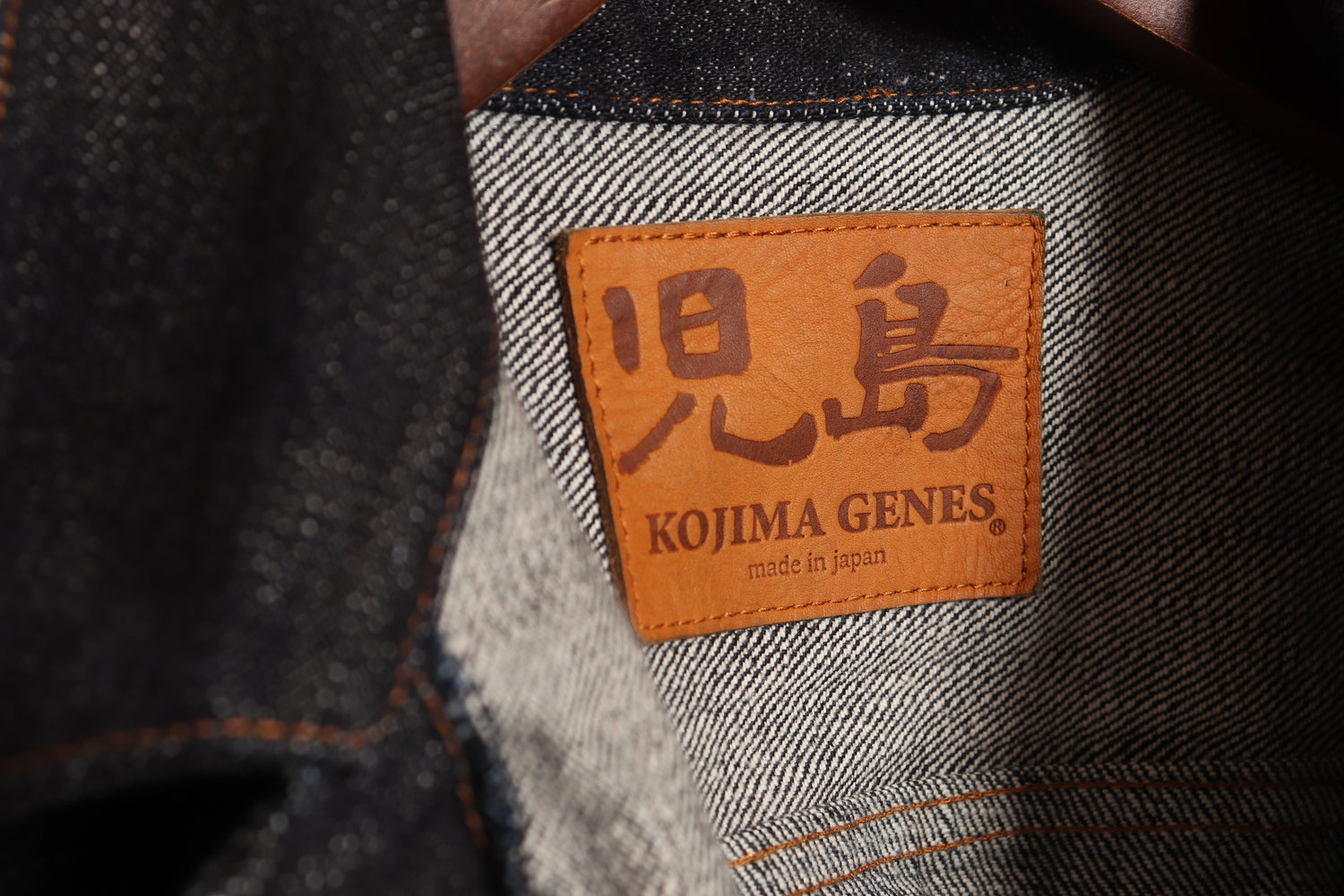
User experience story
text
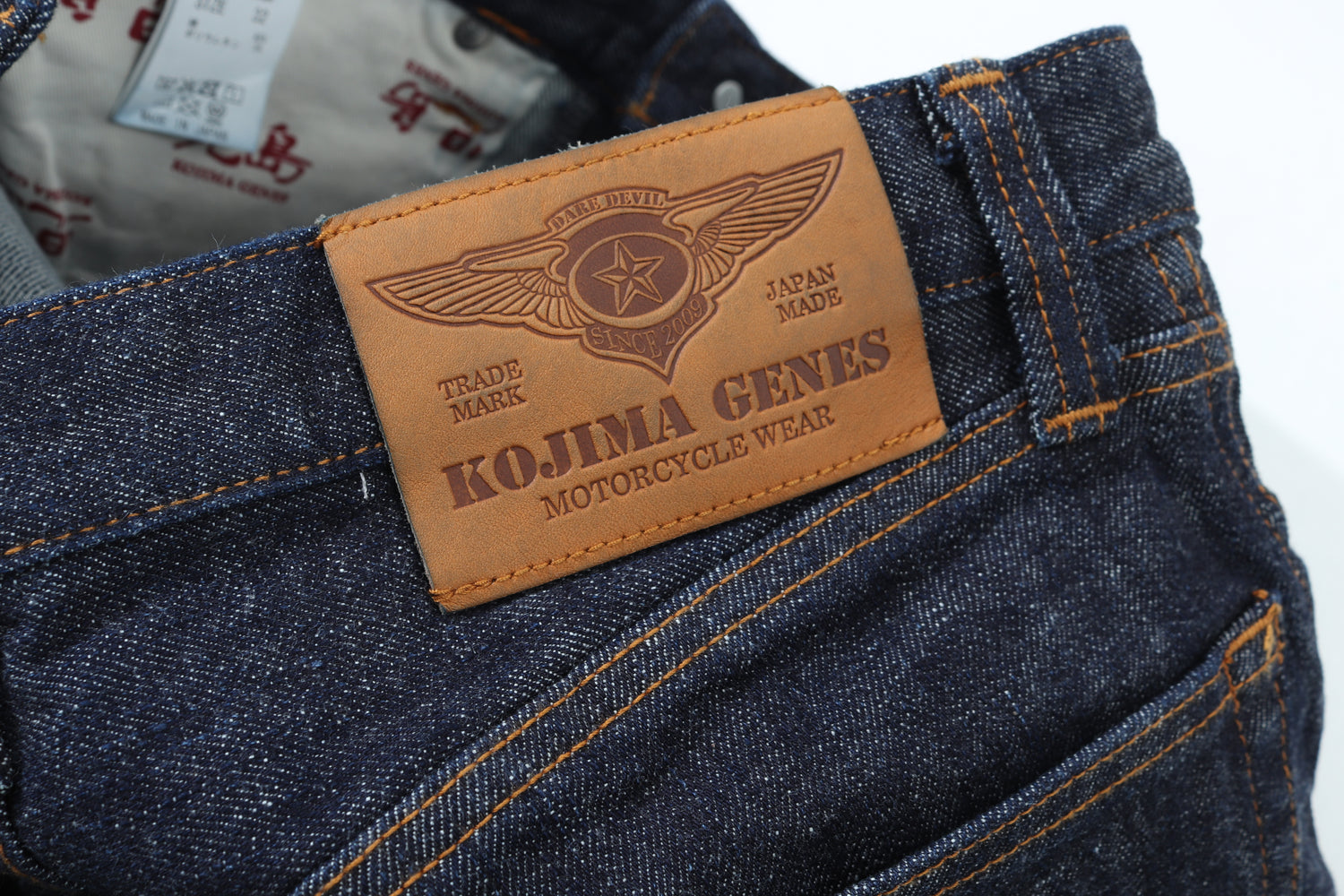
others
text
